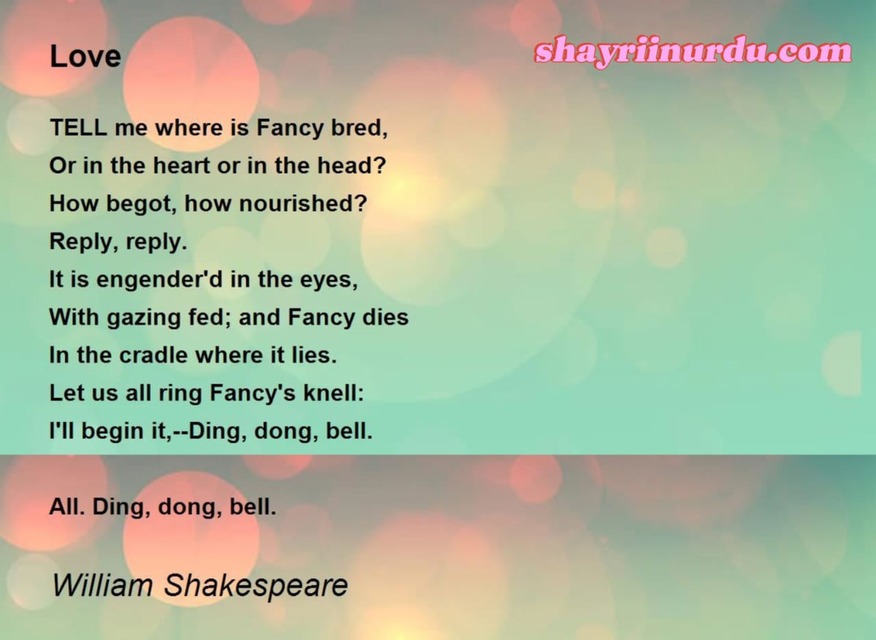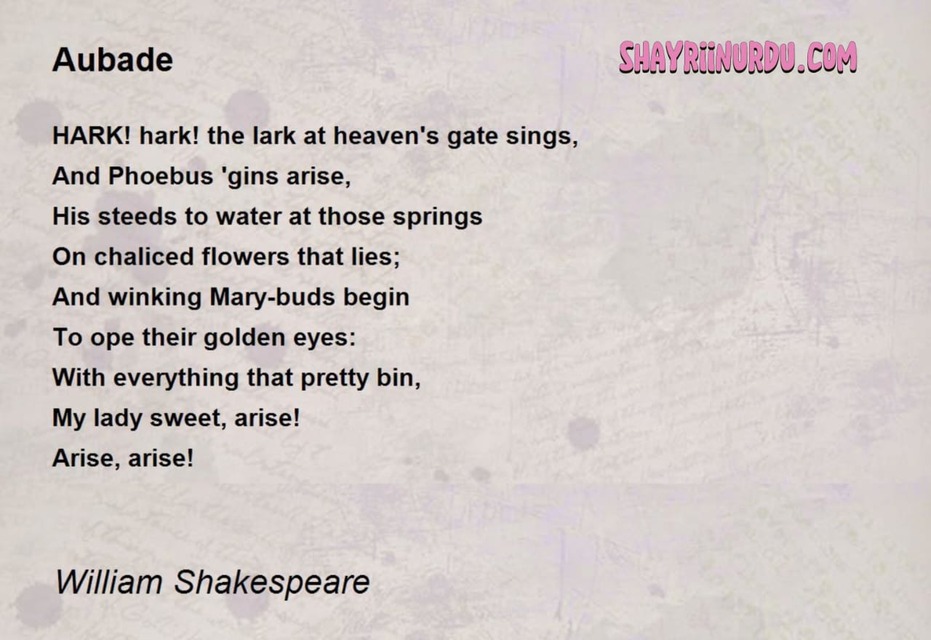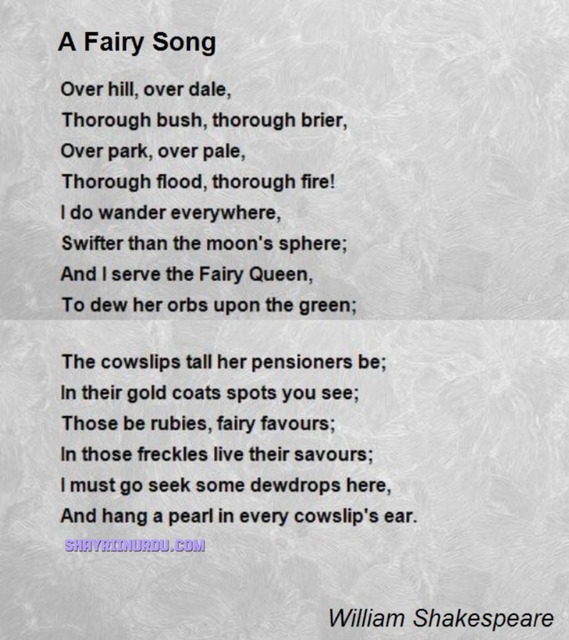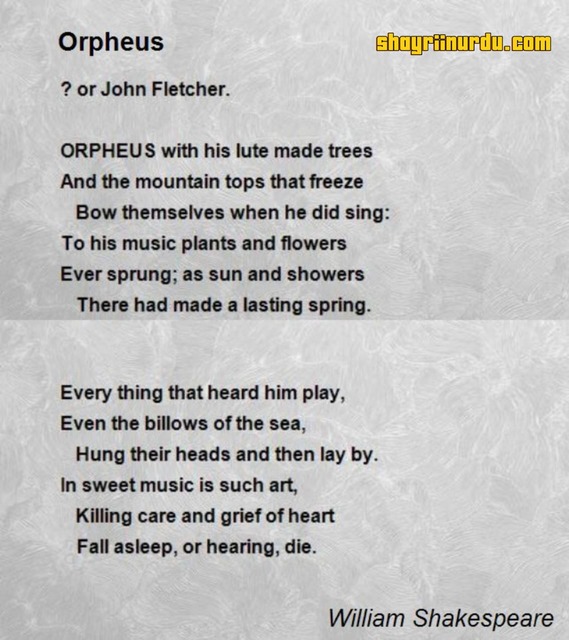William Shakespeare Poem (A Bard’s Heart in Verse”)
English artist William Shakespeare was prevalent and kicked the bucket for all intents and purposes 400 a long time prior. He made a incredible bargain of verse, a part of which proceed to be acknowledged and talked approximately nowadays. His verse covers an broad assortment of issues, from despondency and passing absent to beauty and friendship.
The sonnet “Sonnet 18,” commonly alluded to as “Shall I Compare thee to a Summer’s Day?” is a few of his best-known manifestations. William Shakespeare sonnets relates an individual’s allure in this sonnet to a wonderful summer day and accepts that a person’s excellence never goes absent since it is highlighted in different parts of the lyric.
“Sonnet 116,” another celebrated sonnet, centers on ensuring the characteristic environment of genuine love. William Shakespeare sonnet set up a relationship that keeps undisturbed by challenges and remains positive past them.
William Shakespeare sonnet created long verses incorporate “The Assault of Lucrece” and “Venus and Adonis,” which investigated concepts of adore, crave and fiasco in other than his “Sonnet.” If you need Self-Love Cites at that point press here

Venus and Adonis (1593)
Even as the sun with purple-colour’d face
Had ta’en his final take off of the sobbing morn,
Rose-cheek’d Adonis attempted him to the chase;
Hunting he lov’d, but cherish he laugh’d to disdain;
Sick-thoughted Venus makes amain unto him,
And like a bold-fac’d suitor ‘gins to charm him.
‘Thrice more pleasant than myself,’ hence she began,‘
The field’s chief bloom, sweet over compare,
Stain to all sprites, more beautiful than a man,
More white and ruddy than birds or roses are;
Nature that made thee, with herself at conflict,
Saith that the world hath finishing with thy life.
‘Vouchsafe, thou ponder, to land thy horse,
And curb his glad head to the saddle-bow;
If thou shrink deign this support, for thy meed
A thousand nectar insider facts shalt thou know:
Here come and sit, where never serpent hisses;
And being set, I’ll cover thee with kisses:
‘And however not cloy thy lips with loath’d satiety,
But or maybe famish them in the midst of their bounty
,
Making them ruddy and pale with new variety;
Ten kisses brief as one, one long as twenty:
A summer’s day will appear an hour but short,
Being squandered in such time-beguiling sport;;

The Rape of Lucrece (1594)
Her lily hand her blushing cheek lies under,
Cozening the pad of a legal kiss;
Who, subsequently irate, appears to portion in sunder,
Swelling on either side to need his bliss;
Between whose slopes her head buried is;
Where like a ethical landmark she lies,
To be appreciated of lustful unhallowed eyes.

Seven Ages of Man – All the World’s a Stage (1599)
All the world’s a stage,
And all the men and ladies only players;
They have their exits and their entrances;
And one man in his time plays numerous parts,
His acts being seven ages. At to begin with the infant,
Mewling and vomiting in the nurse’s arms;
And at that point the crying school-boy, with his satchel
And sparkling morning confront, inching like snail
Unwillingly to school. And at that point the lover,
Sighing like heater, with a woeful ballad
Made to his mistress’ eyebrow. At that point a soldier,
Full of unusual pledges, and hairy like the pard,
Jealous in respect, sudden and fast in quarrel,
Seeking the bubble reputation
Even in the cannon’s mouth. And at that point the justice,
In reasonable circular paunch with great capon lin’d,
With eyes extreme and facial hair of formal cut,
Full of astute saws and advanced instances;
And so he plays his portion. The 6th age shifts
Into the incline and slipper’d pantaloon,
With exhibitions on nose and pocket on side;
His young hose, well sav’d, a world as well wide
For his contracted shank; and his huge masculine voice,
Turning once more toward childish treble, pipes
And shrieks in his sound. Final scene of all,
That closes this unusual exciting history,
Is moment childishness and unimportant oblivion;
Sans teeth, sans eyes, sans taste, sans eve

Sonnet 1 – From Fairest Creatures We Desire Increase (1609)
From most attractive animals we crave increase,
That in this manner beauty’s rose might never die,
But as the riper ought to by time decease,
His delicate beneficiary might bear his memory:
But thou contracted to thine possess shinning eyes,
Feed’st thy light’s fire with self-substantial fuel
Making a starvation where wealth lies,
Thy self thy adversary, to thy sweet self as well cruel:
Thou that craftsmanship presently the world’s new ornament,
And as it were proclaim to the vainglorious spring
Within thine claim bud buriest thy content,
And, delicate churl, mak’st squander in niggarding:
Pity the world, or else this epicurean be,
To eat the world’s due, by the grave and thee.
